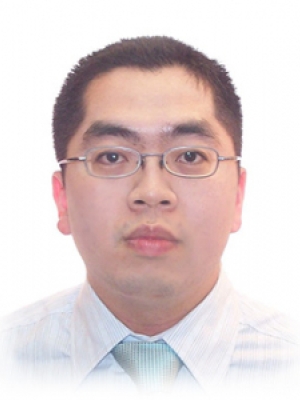
Prof. Shaoyong Zheng Sun Yat-sen University, China | BIO: Prof. Zheng received the M. Phil and Ph. D degree in electronic engineering from City University of Hong Kong, Kowloon, in 2008, and 2011 respectively. He is currently a Full Professor and vice dean with School of Electronics and Information Technology, Sun Yat-sen University, Guangzhou, China, and also a Young Changjiang Scholar of the Ministry of Education. His research focuses on key components of wireless communication, intelligent algorithms, and their applications in device automatic design and tuning. He has led over 10 research projects, including the National Key R&D Program and NSFC general projects, published more than 120 IEEE Transactions papers, and holds 3 U.S. patents and over 30 Chinese invention patents. He won the First Prize of Natural Science Award from the Chinese Institute of Electronics (2022) and Second Prize of Natural Science Award from the Ministry of Education (2019), as well as best paper awards at multiple international conferences. He has served as a General Co-chair of iWEM 2025, and Technical Program Co-chair for several conferences (APMC、ICMMT、CAMA、CSRSWTC, etc.). He is now an Associate Editor of the IEEE Antennas and Wireless Propagation Letters and Microwave and Optical Technology Letters. |
Prof. Han Zhang South China Normal University, China | BIO: Han Zhang received the Ph.D degree from the School of Information Science Technology, Sun Yat-Sen University, Guangzhou, China. Since 2009, he has been with the school of Physics and Telecommunications Engineering (now Electronics Science and Engineering), South China Normal University, where he is a full Professor. He held the position as a Senior Research Associate in the Department of Electrical Engineering, City University of Hong Kong from 2012 to 2013. He is currently also the Chief Scientist and Technical Advisor in several high-technology enterprises in China. His research interests include signal processing for Internet of Things and biomedical engineering. |
Assoc. Prof. Congduan Li Sun Yat-sen University, China | BIO: Congduan Li, Associate Professor and Doctoral Supervisor at Sun Yat-sen University. He is a Young Star in Information Theory by the Chinese Institute of Electronics, a High-Level Overseas Talent in Shenzhen, a Senior Member of IEEE, a member of the China IoT Technical Committee, Director of the Vehicle-Road Coordination Laboratory at the Shenzhen Key Laboratory of Integrated Connectivity, and Secretary of the IEEE Information Theory Society Guangzhou Chapter. In recent years, he has primarily focused on fundamental research in communication networks and artificial intelligence technologies. His related achievements include the publication of over 100 academic papers, including more than 20 top-tier SCI journal papers as first or corresponding author, and the authorization of more than ten Chinese invention patents. Over the past five years, he has led two National Natural Science Foundation projects, one sub-project of the National Key R&D Program, one Guangdong Provincial Key Basic and Applied Basic Research Project, one Guangdong Provincial Key R&D Program Project, one Shenzhen Science and Technology Innovation Key Fund, two Shenzhen Science and Technology Innovation General Projects, one National Defense Key Laboratory Fund, three National and Provincial Key Laboratory Funds, and multiple industry-sponsored R&D projects, including those from Google. Research Areas: Network coding, information theory, social networks, wireless communications, Internet of Vehicles, information security, machine learning, artificial intelligence, etc. |


